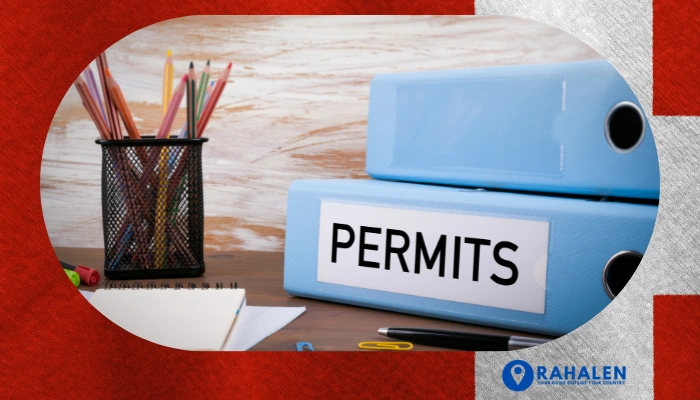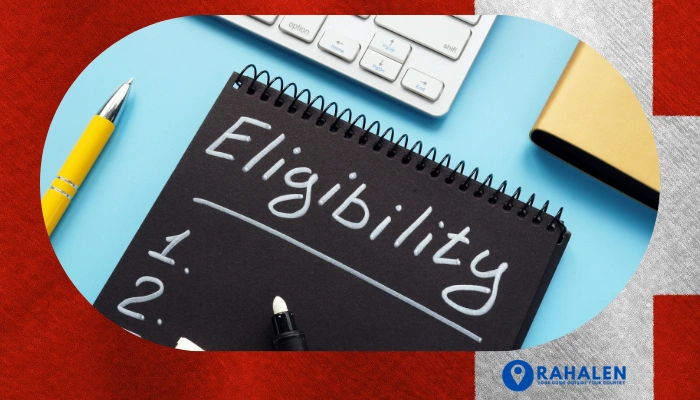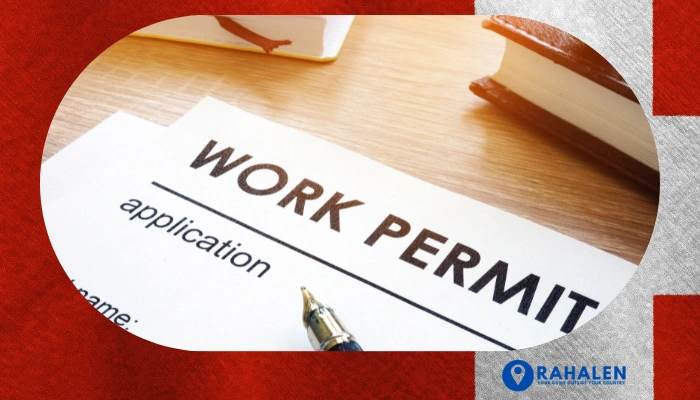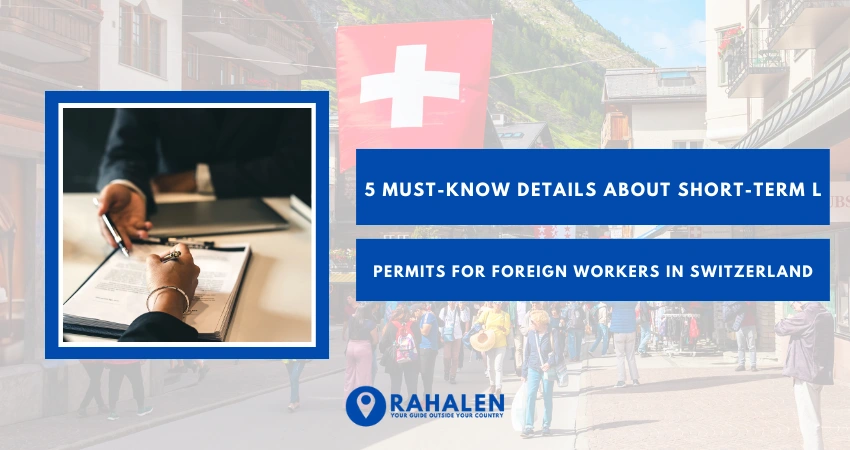Are you considering working in Switzerland temporarily? Short-Term L permits offer an excellent opportunity for foreign workers to engage in short-duration employment within the country. In this article, we’ll delve into the intricacies of Short-Term L permits, exploring their eligibility criteria, application process, benefits, limitations, and more. So, let’s dive in!
Short-Term L Permits for Foreign Workers in Switzerland

In Switzerland, short-term L permits are issued to foreign workers who are employed temporarily. These permits allow non-EU/EFTA citizens to work in Switzerland for up to 12 months. Short-term L permits are typically granted for specific projects, seasonal work, or other short-term employment needs.
Here are some key points about short-term L permits for foreign workers in Switzerland:
- Duration: Short-term L permits are valid for a maximum of 12 months. They are designed for temporary employment situations where the need for foreign workers is expected to be short-term.
- Employer Sponsorship: To obtain a short-term L permit, an employer in Switzerland must sponsor the foreign worker. The employer is responsible for initiating the permit application process and providing the necessary documentation to the Swiss authorities.
- Work Contracts: Foreign workers applying for a short-term L permit must have a valid contract with a Swiss employer. The contract should specify the duration of employment and other relevant terms and conditions.
- Quota Restrictions: Switzerland imposes quotas on the number of short-term L permits issued yearly. Employers may need to demonstrate that they genuinely need foreign workers and that Swiss or EU/EFTA nationals are not readily available to fill the positions.
- Renewal: Short-term L permits are generally only renewable for 12 months. Suppose the employment arrangement is expected to continue beyond one year. In that case, the employer may need to explore other permit options, such as longer-term work permits or residence permits.
- Conditions: Holders of short-term L permits are permitted to work only for the specific employer and in the specific job role indicated on their permit. Any change in employment or employer requires a new permit application.
- Residency: While short-term L permits allow foreign workers to work in Switzerland, they may not grant residency rights beyond the duration of employment. Workers must typically leave Switzerland once their permit expires unless they obtain a different type of permit or visa.
- Application Process: The process for obtaining a short-term L permit involves the employer applying to the relevant Swiss authorities, such as the cantonal labor office or the State Secretariat for Migration (SEM). The application process may vary depending on the specific canton and the type of employment.
Short-term L permits allow employers in Switzerland to fill temporary labor needs with foreign workers, subject to certain restrictions and conditions imposed by Swiss immigration authorities.
Read Also: Top 30: Unskilled Jobs in Switzerland for English Speakers
Eligibility Criteria for Short-Term L Permits in Switzerland

The eligibility criteria for obtaining a short-term L permit in Switzerland typically include the following factors:
- Employment Contract: The applicant must have a valid contract with a Swiss employer. The contract should clearly outline the terms and conditions of employment, including the duration of the assignment and the specific job role.
- Specific Job Role: The employment must be for a specific job role or project that requires the skills and expertise of the foreign worker. The employer must demonstrate that a Swiss or EU/EFTA national can only fill the position if they are qualified candidates.
- Employer Sponsorship: The employer in Switzerland must sponsor the foreign worker by initiating the permit application process and providing the necessary documentation to the Swiss authorities. This includes proof of the need for foreign labor and compliance with Swiss labor laws and regulations.
- Quota Restrictions: Switzerland imposes quotas on the number of short-term L permits issued yearly. Employers may need to ensure that their application meets the quota for foreign workers.
- Non-EU/EFTA Citizenship: Short-term L permits are typically available to non-EU/EFTA citizens who do not already have the right to work in Switzerland. Citizens of EU/EFTA countries may have different permit requirements under the bilateral agreements between Switzerland and the EU/EFTA.
- Qualifications and Experience: Depending on the nature of the job role, the applicant may need to demonstrate relevant qualifications, skills, and experience to perform the duties required by the employer. This may involve providing educational credentials, professional certifications, or work experience documentation.
- No Threat to Public Order or Security: Applicants must not threaten public order, security, or public health in Switzerland. They may be required to provide a clean criminal record certificate or undergo background checks as part of the permit application process.
- Compliance with Immigration Laws: Applicants must comply with Swiss immigration laws and regulations throughout the permit application process and during their stay in Switzerland. Any misrepresentation or violation of immigration laws could result in denying the permit or other legal consequences.
Meeting these eligibility criteria is essential for foreign workers seeking to obtain a short-term L permit in Switzerland. Employers and applicants should carefully review the requirements and ensure all necessary documentation and information are provided to the Swiss authorities to support the permit application.
Application Process for Short-Term L Permits in Switzerland

The application process for obtaining a short-term L permit in Switzerland typically involves several steps, which may vary depending on the specific canton and the nature of the employment. Here’s a general overview of the process:
- Job Offer and Employment Contract: The first step is for the applicant to secure a job offer from a Swiss employer. The employer and the applicant must then sign a valid employment contract specifying the employment terms and conditions, including the duration of the assignment and the job role.
- Employer’s Responsibility: The Swiss employer is responsible for initiating the permit application process on behalf of the foreign worker. The employer must gather all necessary documents and submit them to the relevant Swiss authorities, such as the cantonal labor office or the State Secretariat for Migration (SEM).
- Required Documents: The documents typically required for a short-term L permit application may include:
- Copy of the valid passport of the applicant
- Copy of the employment contract signed by both the employer and the applicant
- Proof of the employer’s registration with Swiss authorities
- Justification for hiring a foreign worker (e.g., shortage of qualified Swiss or EU/EFTA candidates)
- Any additional documents requested by the immigration authorities
- Submission of Application: The employer submits the completed permit application and supporting documents to the relevant Swiss authorities. The application may be submitted electronically or in person, depending on the procedures followed by the cantonal authorities.
- Processing Time: The processing time for short-term L permit applications can vary, but it typically takes several weeks to receive a decision. During this time, the authorities may review the application, conduct any necessary background checks, and verify the information provided.
- Decision: Once the application is processed, the Swiss authorities will decide whether to grant the short-term L permit. If approved, the permit will be issued to the applicant and sent to the employer for distribution to the employee.
- Arrival in Switzerland: Upon receiving the short-term L permit, the foreign worker can travel to Switzerland and commence employment with the sponsoring employer. It’s essential to ensure that all conditions of the permit are met throughout the employment.
- Renewal or Extension: Short-term L permits are generally valid for 12 months and may not be renewable beyond this period. Suppose the employment arrangement is expected to continue beyond one year. In that case, the employer may need to explore other permit options, such as longer-term work permits or residence permits.
Both employers and applicants must familiarize themselves with the specific requirements and procedures for short-term L permit applications in the relevant canton. Consulting with immigration authorities or legal professionals experienced in Swiss immigration law can also help ensure a smooth application process.
Benefits of Short-Term L Permits in Switzerland

Short-term L permits in Switzerland offer several benefits for both employers and foreign workers:
- Flexibility: Short-term L permits allow employers to hire foreign workers for specific projects or seasonal needs without the long-term commitment associated with other types of permits. This flexibility allows businesses to adapt to changing labor demands efficiently.
- Ease of Application: Compared to other types of work permits in Switzerland, the application process for short-term L permits is often simpler and faster. This can expedite the hiring process for employers and enable them to fill temporary staffing gaps more quickly.
- Access to Skilled Talent: Short-term L permits allow Swiss employers to access skilled talent from outside the country to meet specific needs or address skill shortages in certain industries or professions. This can enhance productivity and competitiveness in the Swiss labor market.
- International Experience: Short-term L permits allow foreign workers to gain valuable international work experience in Switzerland, a country known for its high quality of life and strong economy. This experience can enhance their professional development and future career prospects.
- Cultural Exchange: Short-term L permits cultural exchange by enabling foreign workers to interact with Swiss colleagues and immerse themselves in Swiss culture and society. This cultural exchange can foster mutual understanding and collaboration in the workplace.
- Networking Opportunities: Working in Switzerland under a short-term L permit allows foreign workers to expand their professional networks and establish connections within their industry. These networking opportunities can be valuable for future career advancement or business endeavors.
- Potential for Long-Term Employment: Short-term L permits are valid for up to 12 months and may not be renewable. However, they can serve as a stepping stone to longer-term employment opportunities in Switzerland. Employers may extend the employment contract or sponsor the foreign worker for a different type of permit if needed.
- Contribution to the Swiss Economy: By allowing employers to fill temporary staffing needs with foreign workers, short-term L permits contribute to Switzerland’s overall productivity and economic growth. Foreign workers pay taxes and contribute to the local economy during their stay, benefiting businesses and communities.
Short-term L permits play a vital role in facilitating temporary employment arrangements in Switzerland, benefiting employers seeking flexible staffing solutions and foreign workers seeking professional opportunities in the country.
Limitations of Short-Term L Permits in Switzerland

While short-term L permits in Switzerland offer various advantages, they also come with certain limitations for both employers and foreign workers:
- Limited Duration: Short-term L permits are valid for a maximum of 12 months and are generally not renewable beyond this period. This limitation restricts the duration of employment for foreign workers. It may not be suitable for long-term staffing needs or career aspirations.
- Quota Restrictions: Switzerland imposes quotas on the number of short-term L permits issued yearly. Employers may need help obtaining permits if they exceed the available quota or if there is a high demand for permits in certain industries or professions.
- Restricted Employment: Holders of short-term L permits are typically limited to working for the specific employer and in the specific job role indicated on their permit. Any change in employment or job role requires a new permit application, which can be cumbersome for employers and workers.
- Limited Residency Rights: Short-term L permits may not grant residency rights beyond the duration of employment. Foreign workers must typically leave Switzerland once their permit expires unless they obtain a different type of permit or visa allowing them to stay longer-term.
- Competitive Job Market: Switzerland has a highly competitive job market, particularly in certain industries and professions. Foreign workers with short-term L permits may need help competing with local and EU/EFTA candidates for employment opportunities.
- Language Requirements: Depending on the nature of the job role and the employer’s preferences, proficiency in one or more of Switzerland’s official languages (German, French, Italian, or Romansh) may be required. Foreign workers who do not speak the local language fluently may encounter barriers to employment.
- Limited Benefits: Short-term L permit holders may have limited access to social benefits and entitlements compared to Swiss citizens or holders of other types of permits. This can include access to healthcare, social security, and unemployment benefits.
- Uncertainty for Employers: Employers may need more certainty when hiring foreign workers on short-term L permits, as the permits are subject to approval by Swiss authorities and may not be guaranteed. This uncertainty can affect workforce planning and project timelines.
Despite these limitations, short-term L permits remain a valuable option for employers seeking temporary staffing solutions and foreign workers seeking international work experience in Switzerland. Both parties must understand the restrictions and plan accordingly when considering short-term employment arrangements.
Comparison with Other Types of Work Permits
Here’s a comparison table outlining key differences between short-term L permits and other types of work permits in Switzerland:
| Aspect | Short-term L Permit | B Permit (Residence Permit) | C Permit (Settlement Permit) |
|---|---|---|---|
| Duration | Up to 12 months | Typically 1-5 years | Indefinite |
| Renewable | Generally not renewable | Renewable | N/A |
| Employment Restrictions | Specific employer and job role | Allows flexibility | N/A |
| Quota Restrictions | Subject to quota limits | N/A | N/A |
| Residency Rights | Limited to duration of employment | Yes | Yes |
| Language Requirements | Not specified | May require language proficiency | May require language proficiency |
| Access to Benefits | Limited | Yes | Yes |
| Path to Permanent Residency | Generally not applicable | Possible after several years | Possible after several years |
This table provides a simplified comparison between short-term L permits, B permits (residence permits), and C permits (settlement permits) in Switzerland.
It’s important to note that the specific requirements and conditions associated with each type of permit may vary depending on individual circumstances and Swiss immigration laws and regulations.
Tips for Successful Application

Here are some tips for a successful application for a short-term L permit in Switzerland:
- Start Early: Begin the application process well before the intended start date of employment to allow sufficient time for processing and potential delays.
- Understand Requirements: Familiarize yourself with the eligibility criteria and required documents for a short-term L permit. Ensure that you meet all the requirements before submitting your application.
- Work with a Reliable Employer: Choose a reputable Swiss employer familiar with the immigration process and willing to support your permit application. Clear communication and cooperation with your employer can streamline the application process.
- Provide Accurate Information: Ensure all information in the application forms and supporting documents is accurate and up-to-date. Any discrepancies or inaccuracies could lead to delays or rejection of your application.
- Prepare Supporting Documents: Gather all required documents, such as a valid passport, employment contract, proof of employer registration, and justification for hiring a foreign worker. Make sure these documents are complete and organized for submission.
- Address Language Requirements: If the job requires proficiency in one of Switzerland’s official languages, consider improving your language skills or providing evidence of language proficiency as part of your application.
- Follow Instructions Carefully: Pay close attention to the instructions provided by the Swiss authorities and follow them carefully when completing the application forms and submitting documents. Any errors or omissions could result in delays or rejection of your application.
- Stay Informed: Keep yourself updated on any changes to Swiss immigration laws and regulations that may affect your application process. Consult with immigration experts or legal professionals for any questions or concerns.
- Be Patient: Understand that the permit application process may take time, and there may be delays beyond your control. Remain patient and proactive in following up on the status of your application if necessary.
- Maintain Communication: Regularly communicate with your employer and the Swiss authorities throughout the application process. Promptly respond to requests for additional information or clarification to expedite the process.
By following these tips and carefully preparing your application, you can increase your chances of success in obtaining a short-term L permit to work in Switzerland.
Renewal Process for Short-Term L Permits in Switzerland

The renewal process for short-term L permits in Switzerland differs from other permits, primarily because short-term L permits are generally not renewable. However, in certain exceptional cases, renewal opportunities may exist under specific circumstances. Here’s an overview of the renewal process for short-term L permits:
- Assessment of Eligibility: Before the initial short-term L permit expires, both the employer and the foreign worker should assess whether renewal is feasible and necessary. Factors such as continued employment needs, changes in project timelines, and the availability of alternative permit options should be considered.
- Documentation Preparation: If renewal is deemed necessary, the employer and the foreign worker should gather all required documentation for the renewal application. This may include updated employment contracts, proof of ongoing project requirements, and any other supporting documents requested by the Swiss authorities.
- Submission of Renewal Application: The renewal application for a short-term L permit is typically submitted to the relevant Swiss authorities, such as the cantonal labor office or the State Secretariat for Migration (SEM), before the expiration of the current permit. The application process may vary depending on the specific canton and the renewal circumstances.
- Assessment and Decision: The Swiss authorities will review the renewal application, considering factors such as the continued need for foreign labor, compliance with immigration laws, and any changes in circumstances since the initial permit was issued. A decision will be made on whether to approve or deny the renewal.
- Notification of Decision: Once a decision is reached, the employer and the foreign worker will be notified of the outcome of the renewal application. If approved, the renewed short-term L permit will be issued, allowing the foreign worker to continue employment in Switzerland for an additional period, typically up to 12 months.
- Compliance with Conditions: Throughout the renewed permit period, the employer and the foreign worker must continue to comply with the conditions specified, including the specific job role and employer indicated on the permit.
- Exploring Alternatives: If renewal of the short-term L permit is not possible or advisable, the employer and the foreign worker may need to explore alternative permit options, such as longer-term work permits or residence permits, to continue employment in Switzerland beyond the initial permit period.
It’s important to note that the renewal of short-term L permits is not guaranteed, and each case is assessed based on its merits. Employers and foreign workers should carefully consider their options and consult with immigration authorities or legal professionals for guidance on the renewal process.
In conclusion, Short-Term L permits offer foreign workers a valuable opportunity to engage in temporary employment in Switzerland. By understanding the eligibility criteria, application process, benefits, and limitations associated with these permits, applicants can navigate the immigration process more effectively and pursue their career goals in Switzerland.
FAQs
- Can I apply for a Short-Term L permit without a job offer?
- No, a valid employment offer from a Swiss employer is required to qualify for a Short-Term L permit.
- Is there a limit to the number of times I can renew my Short-Term L permit?
- While there is no specific limit on the number of renewals, each renewal is subject to approval by the Swiss immigration authorities.
- Can I travel outside Switzerland while holding a Short-Term L permit?
- Yes, Short-Term L permit holders are generally allowed to travel outside Switzerland within the permitted duration of their stay.
- Do Short-Term L permits provide access to Switzerland’s healthcare system?
- Short-Term L permit holders may be required to obtain private health insurance as they may not have access to Switzerland’s public healthcare system.
- Can I bring my family members to Switzerland on a Short-Term L permit?
- Family members of Short-Term L permit holders may be eligible for dependent permits, allowing them to join the permit holder in Switzerland under certain conditions.



